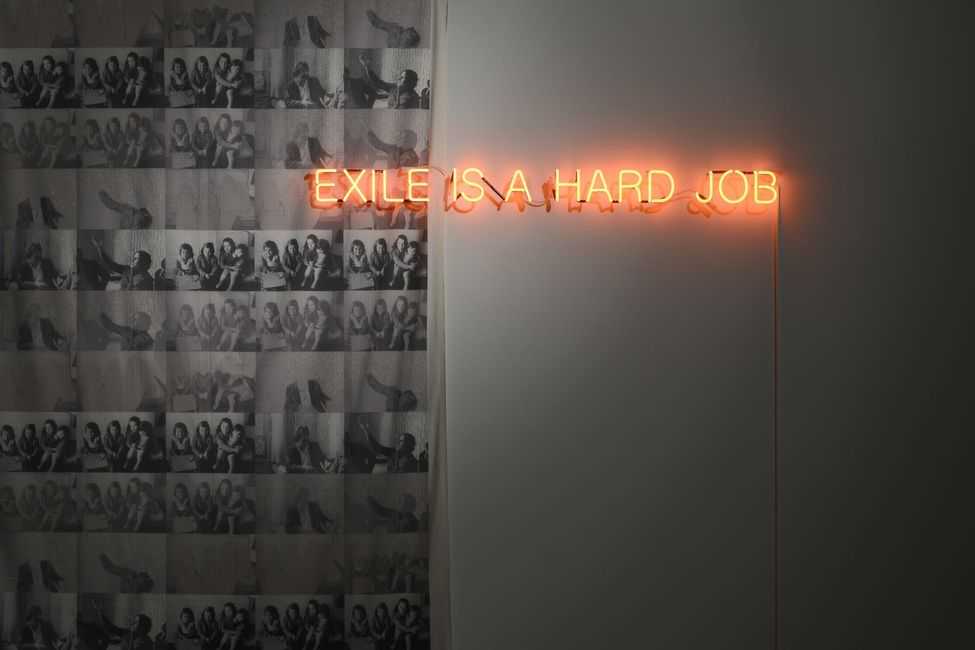CALL FOR PAPERS CONCEPTUALISM – INTERSECTIONAL READINGS, INTERNATIONAL FRAMINGS: BLACK ARTISTS AND MODERNISM IN EUROPE AFTER 1968 DEADLINE: 31st MARCH 2017
Presented by Black Artists & Modernism in collaboration with Van Abbemuseum
Convenors: Dr Sophie Orlando, Dr susan pui san lok and Nick Aikens
Dates: Friday 8th and Saturday 9th December 2017
Location: Van Abbemuseum, Eindhoven, Netherlands
#BAMVAM2017
The Black Artists & Modernism research project is pleased to announce the forthcoming conference, Conceptualism – Intersectional Readings, International Framings, in collaboration with Van Abbemuseum. The conference will take place from Friday 8th December to Saturday 9th December 2017 at the Van Abbemuseum, Eindhoven.
Across continental Europe, the term ‘Black’ has not coalesced in the way that it has operated in Britain: belonging to a range of post-colonial identities; without a specific artistic style; nor an agreed space within modernism.
‘Black artists (descendants of post-colonial or migrational communities – i.e. how the term black might be applied in a continental European context), and their aesthetic choices have tended to be excluded from canonical art history within high modernism because their work is typically framed within the conditions of production and reception’.
The Conceptualism – Intersectional Readings, International Framings conference seeks to address this with a focus on Conceptualism, which is all too often associated with resisting identity politics. Intersectionalism, however, is associated with a feminist approach (Combahee River Collective, 1978) that has acknowledged differences across ‘universalist’ feminism, since its early stages. Developing internationally from the context of the US (Kimberle W. Crenshaw, 1989, Patricia Hill Collins, 1990), numerous individuals have been quick to debate the inter-relation between race, class, gender and sexuality, understanding power differentials as co-constituted and co-constitutive (Lutz, Vivar and Supik, 2014). In the UK, feminist art historians have also been negotiating these situated positions since the mid-1980s, through links to New Art History, Cultural Studies and Black feminism (Pollock, Robinson, Deepwell, Kokoli, Tawadros and Cheddie).
This conference seeks to open up new understandings of Conceptualism produced by artists based in Europe after the political and social upheavals of 1968, to question how artworks can be read beyond biographical and sociological contexts, and instead return to the materiality of the work, its conditions of display, interpretation and consumption.
The focus on Conceptualism in Europe after 1968 aims to highlight the limits of discourses on ‘Blackness’ and ‘Conceptualism’, through a shift in perspective beyond British and transatlantic frames. To that end, the conference adopts Luis Camnitzer’s definition of ‘Conceptualism’ as a “wide array of works and practices which, in radically reducing the role of the art object, reimagined the possibilities vis-à-vis the social, political, and economic realities within which it was being made” (1999). In the ground-breaking exhibition, Global Conceptualism: Points of Origins 1950-1980s (1999), Camnitzer, Rachel Weiss and Jane Farver established a new framework for thinking about the development and mobilisation of an international consciousness that gave rise to specific artistic practices around the world between two periods, from 1950 to 1973, and from the mid-1970s to the end of the 1980s.
Looking particularly at the practices of artists based, or with long-term connections to Europe, the conference objectives are two-fold. Firstly, to open up debates around intersectional readings of artists’ practices and artworks that shift the interpretative paradigm from the question of how they represent identity politics, to how they arguably produce identity politics. Secondly, by acknowledging the way that art history has been revised and become contingent on diverse perspectives (see Iris Dressler and Hans D. Christ (2009) or Helen Molesworth (2012)), the conference seeks to question how we might begin to differently situate Conceptual artistic practices in Europe in terms of intersectionality.

